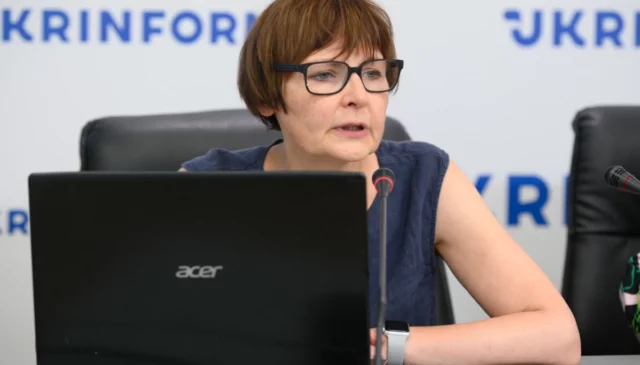Understanding the Privacy Concerns of Internally Displaced Persons in Ukraine
Internally displaced persons (IDPs) in Ukraine are not just surviving; they are navigating a complex landscape filled with challenges, one of which is the sensitivity to privacy breaches in media. Recent research, spearheaded by Marta Naumova, a respected candidate of sociological sciences and a senior researcher at the Institute of Sociology of the National Academy of Sciences of Ukraine, sheds light on this pressing issue. What we discover is both alarming and urgent.
Insights from Recent Research
The findings reveal that IDPs exhibit heightened sensitivity to issues such as gossip and slander compared to their fellow citizens. Here’s a breakdown of the key statistics:
— **Gossip and Slander**: 64% of IDPs react strongly to these issues, compared to just 60.3% of other Ukrainians.
— **Violations of Privacy**: 60.5% of IDPs feel concerned about their right to respect for private life, as opposed to 55.2% of the general population.
— **Hate Speech**: 49% of IDPs are impacted by hate speech, while this figure stands at 47.1% for others.
These numbers are more than just percentages; they reflect the deeper psychological and emotional impact of displacement, where individuals already face numerous hardships.
The Real-Life Implications
Imagine being uprooted from your home, only to find yourself in a new environment where your identity and privacy are under constant threat. This is the reality for many IDPs in Ukraine. Their heightened sensitivity stems from previous experiences of discrimination and trauma. For instance, an IDP may face derogatory remarks online, which can exacerbate feelings of isolation and anxiety—an all-too-common occurrence in today’s digital age.
Here are some practical steps that media outlets and the public can take to support the privacy rights of IDPs:
— **Promote Respectful Narratives**: Encourage media organizations to prioritize respectful and accurate portrayals of IDPs.
— **Highlight Success Stories**: Feature positive stories of IDPs rebuilding their lives to foster empathy and understanding.
— **Educate the Public**: Run campaigns to raise awareness about the issues faced by IDPs and the importance of privacy.
Collaborative Efforts for Better Media Practices
This significant study was a collaborative effort with the National Media Literacy Project «Filter» and «Media Detector.» Together, these initiatives aim to enhance media literacy across the nation, especially for vulnerable groups like IDPs. The goal is to empower individuals with the knowledge and tools to navigate the media landscape safely and effectively.
In a world where information flows freely, protecting the privacy of those who have already suffered so much is not just a right; it is a responsibility. By promoting media literacy and safeguarding our fellow citizens’ dignity, we can create a more compassionate and understanding society.
Conclusion: A Call to Action
As we delve deeper into the plight of IDPs, it becomes clear that addressing their privacy concerns is critical. It requires a collective effort from media professionals, policymakers, and the broader public. Let us stand together to defend the rights of all individuals, ensuring that everyone’s story is told with respect and dignity. The power to effect change lies within us all—let’s use it wisely.






